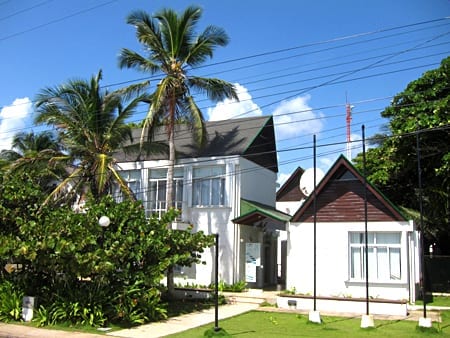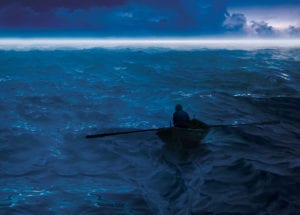By Daniel de la Calle
Islands make for miniature universes, like snow globes: they transform a few miles distance into the crossing of a continent, produce insular dwarfism (where even the animals try to scale down and look only into the restricted cosmos) and remarkable adaptation from its species. I know what it is like, I was born an islander and have spent long periods of time on them. For this reason alone a festival like Sea Flower Film Fest on speck-sized and bucolic San Andrés is of particular importance. While during this visit its residents seemed mainly focused on self determination and/or independence from mainland Colombia, while they were trying to discern who is a “true local” from the mere “newcomers” of a generation or two in the highly populated archipelago, both the festival organizers and filmmakers taking part in the four day event expressed a more ample view of the world we currently live in: a place of interconnectedness, with no more safe harbors. A confrontation now, in the XXI Century about entitlement and territory is absurdly futile, more dangerous than ever.
Personally, I only want to hear about unity and the adoption of global policies, want to worry about the planet as a whole and have very little patience for the waving of flags and the singing of national anthems. San Andresians need to hear that no quantity of water between us and the mainland makes us different, grants us sanctuary any more.

Local kids bond and bring lunch home in Taganga, Colombia.
Our own screening at the festival went really well. We had an enthusiastic exchange of questions and answers that spilled out into the hallways of Hotel Sunrise, the festival venue. It felt good to talk on a coralline island about the overwhelming threat of Ocean Acidification, its people must be even more touched by the magnitude of the changes we are about to encounter, since they will be able to witness them from their kitchen windows and corals are of such importance to them, even to their economy. And while there is an element of sadness intrinsic to it all, talking about bad things is clearly very comforting as well; to me it always feels like the first step in the right direction, that of information as a prelude to action.
So to continue informing, the following morning, before leaving for Bogotá we did an impromptu screening with undergraduate students at the island’s Universidad Nacional de Colombia. Some of the faculty staff are doing research on Ocean Acidification and I was asked questions about making films as well as about the oceans. I tried to stress the message to these students that as much as we need good scientists to dig the data we are in desperate need of intelligent, charismatic and motivated young people willing to talk about it to the population, the media and the decision makers.

The Universidad Nacional de Colombia in San Andrés, an example of architectural insular dwarfism. What a dream to study at a place like this, ten meters away from the water.
Link to an article on the festival and A Sea Change on the local press:
http://www.elisleño.com/index.php?option=com_content&view=article&id=2603:catarata-de-cine-ambiental-en-el-seaflower-fest&catid=39:cultura&Itemid=82


